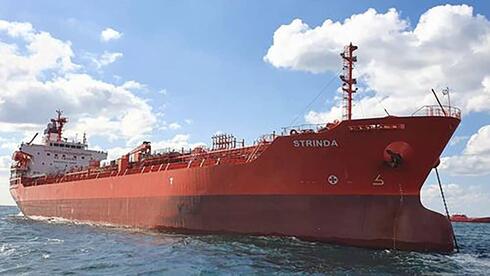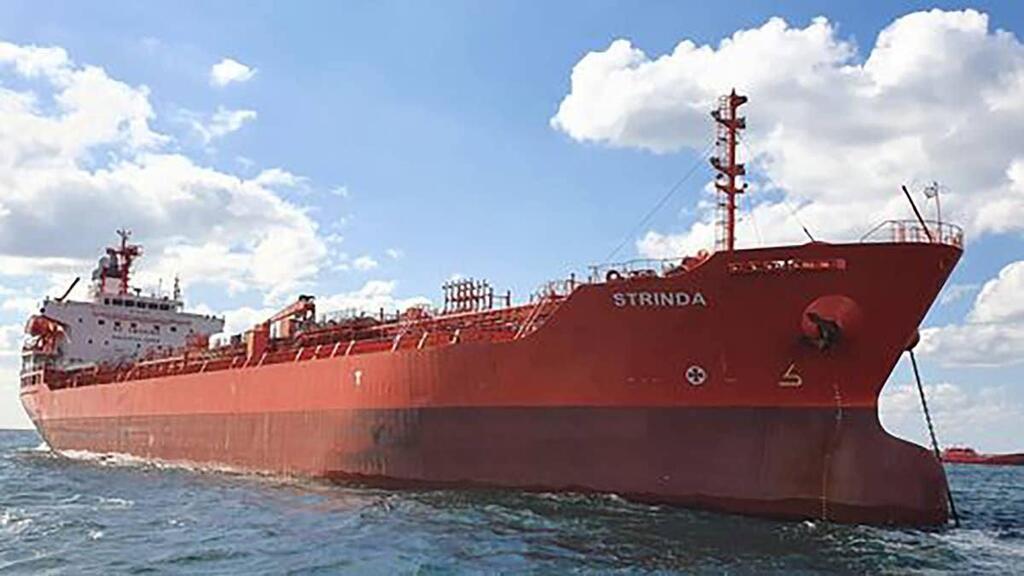
Shipping traffic in Red Sea down over 30% amid Houthi attacks
Ship tracking company MariTrace reported that 210 ships have traveled through the Red Sea in December compared to about 330 last month. The US has moved warships to the area and is leading an international naval force to secure the route
The United States announced this week the establishment of an international task force to protect ships in the Red Sea from Houthi attacks. However, it seems that shipping companies are firmly sticking to their decision to avoid the route. According to data collected by the ship tracking company MariTrace, as of Tuesday evening, only 210 ships traveled through the Red Sea in December, a small number for one of the busiest shipping routes in the world, especially since the Russian invasion of Ukraine nearly two years ago. By comparison, last month there were 330 ships navigating the route. Shipping giant Maersk announced on Tuesday that it had halted about 20 ships, half of them waiting east of the Gulf of Aden and the rest across the Suez Canal.
Due to rising concerns about how such trade disruptions could rekindle inflation, U.S. Defense Secretary Lloyd Austin announced earlier this week the establishment of an international naval force. Ten countries will participate in the force, which will include warships to escort commercial ships crossing the region. Austin held a video conference with representatives of participating countries, warning that the threat to the global economy would persist unless additional countries joined the fight. "He reiterated that the international community faces an unprecedented global challenge that requires joint action," said the Pentagon.
This decrease in traffic is a result of Houthi attacks from Yemen against commercial ships passing through the Bab el-Mandeb Strait. The escalation of these attacks has led many companies, including Maersk and BP, to suspend activities in the area and to instead send ships through the Cape of Good Hope in Africa.
Since the Gaza war began, more than ten attacks on ships in the region have been reported, with the U.S. Navy intercepting about ten drone attacks. These attacks and subsequent disruption of shipping routes could disrupt global supply chains again, which are recovering from the disruption of the COVID-19 pandemic. The route represents 30% of global container ship traffic and is considered a crucial passage for oil shipments.
Countries that have joined the initiative so far include Britain, France, Canada, the Netherlands, Italy, Norway, Seychelles, and Bahrain, the only Arab country. However, no major Middle Eastern country is participating, even though many Arab countries depend on trade passing through the Red Sea. For example, Egypt earned a record $9.4 billion last year from ships passing through the Suez Canal, representing 2% of its GDP and serving as an important source of foreign currency. According to The New York Times, the reason for the refusal of major Arab states to participate is due to American support for Israel in the war against Hamas. "This is truly an unpleasant and embarrassing moment for most Arab countries," said Dr. Sanam Vakil from think tank Chatham House. "They don’t want to be perceived as supporting the destruction of Gaza by Israel."
In contrast, countries that have joined the naval force have already begun defense operations. Britain has moved a destroyer to the Red Sea. Politico reported that the HMS Diamond destroyer, which has been operating in the region, will officially join the international force. Italy announced that it will send a ship equipped with long-range missiles to the area earlier than planned, and it will cross the Suez Canal on December 24. The German Defense Minister said that they are considering transferring ships to the region, but an official decision has not yet been made. "These unlawful attacks threaten the global economy, undermine regional security, and could lead to an increase in fuel prices," said British Defense Secretary Grant Shapps.
Meanwhile, Norwegian shipping company Wallenius Wilhelmsen said Tuesday that diverting ships to Africa will add one to two weeks to their journeys. Similarly, Michael Aldwell, Vice President Sea Logistics at Swiss logistics company Kuehne+Nagel, told the Financial Times that the journey between Asia and Europe usually takes 30-40 days, but "choosing an alternative route from Asia to Europe could extend the journey by three to four weeks." Accordingly, economists have begun warning of additional disruptions. For instance, IKEA announced that the situation "will lead to delays and may limit the availability of some products."
Additional disruptions are also expected regarding liquefied natural gas (LNG) shipments. According to consulting company ICIS, which monitors ship data, three LNG-carrying ships chartered by the Gunvor and U.S. gas manufacturer Cheniere changed their routes to avoid the Red Sea. About 8% of global LNG shipments passed through the Suez Canal this year, and according to research company Vortexa, 8.2 million barrels per day of oil and petroleum products passed through the Red Sea between January and November. Qatar is the leading exporter of gas to Europe through this route, and bypassing the Cape of Good Hope is expected to extend the journey of Qatari gas ships by 145%, or an additional 22 days.














